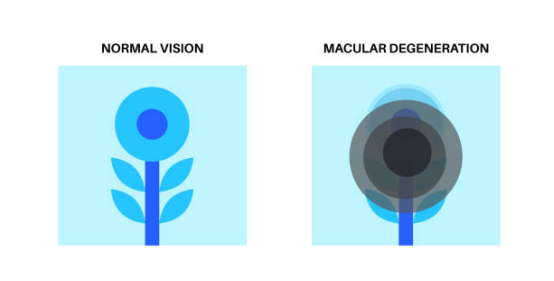Understanding Macular Hole: Causes, Symptoms, and Treatment
A macular hole is a small break or tear in the macula, the central part of the retina responsible for sharp, detailed vision.
A macular hole is a small break or tear in the macula, the central part of the retina responsible for sharp, detailed vision.
Macular holes can cause significant vision impairment, particularly in tasks that require fine vision, such as reading or driving. While macular holes typically affect older adults, they can also occur in younger individuals due to trauma or other underlying conditions.

What is a Macular Hole?
A macular hole is a small, round opening in the macula, which is located at the center of the retina. The macula is responsible for central vision and helps us see fine details. When a macular hole develops, the central vision becomes blurred or distorted. The condition is most often caused by age-related changes in the vitreous, the gel-like substance that fills the eye. As the vitreous shrinks and pulls away from the retina, it can create a tear in the macula, leading to the formation of a macular hole.
Causes and Risk Factors
While the exact cause of macular holes is not always clear, there are several risk factors that may contribute to their development:
- Age: The majority of macular holes occur in people over the age of 60. Age-related changes in the vitreous, such as shrinkage and pulling away from the retina, are a common cause.
- Trauma: A blow to the eye or head can lead to the formation of a macular hole.
- Myopia (nearsightedness): People with severe nearsightedness are at higher risk of developing macular holes due to the elongated shape of the eye, which increases stress on the retina.
- Other Eye Conditions: Conditions like diabetic retinopathy or retinal vein occlusion may increase the risk of macular holes.
Symptoms and Early Detection
The symptoms of a macular hole can vary depending on the size and location of the hole. Common symptoms include:
- Blurred or distorted central vision
- Difficulty reading or recognizing faces
- The appearance of a dark or blank spot in the center of the vision
- Wavy or distorted lines when looking at straight objects
Early detection of macular holes is important, as prompt treatment can prevent further vision loss. Regular eye exams are crucial, particularly for individuals at risk due to age or other underlying conditions.
Diagnosis
Diagnosing a macular hole requires a comprehensive eye exam by an ophthalmologist. The doctor may use the following diagnostic tools:
- Dilated Eye Exam: The pupil is dilated to allow a detailed examination of the retina and macula.
- Optical Coherence Tomography (OCT): This imaging technique provides detailed cross-sectional images of the retina, allowing the doctor to detect the presence of a macular hole.
- Fluorescein Angiography: This test involves injecting a dye into the bloodstream to highlight blood vessels in the retina and assess any abnormal changes caused by the macular hole.
Treatment Options
Treatment for a macular hole often involves surgery to repair the hole and restore vision. Common treatment options include:
- Vitrectomy: This surgical procedure involves removing the vitreous gel from the eye to relieve pressure on the retina and allow the macular hole to close. A gas bubble is often placed inside the eye to help the hole heal.
- OCT-guided Surgery: Using OCT imaging, the surgeon can accurately target the macular hole and repair it with precision.
- Post-Surgery Care: After surgery, patients may need to position their head in a specific way to allow the gas bubble to remain in place and help the healing process.
Living with a Macular Hole
Living with a macular hole may require adjustments to daily tasks, particularly those that require sharp central vision. Following the prescribed treatment plan, including any necessary post-surgery positioning, is essential for a successful outcome. Low-vision aids may also be helpful for managing vision loss.
Conclusion
A macular hole can significantly impact central vision, but with timely diagnosis and appropriate treatment, it is possible to repair the hole and restore vision. Regular eye exams and early intervention are key to preventing permanent vision loss. If you notice any changes in your vision, it's important to consult an eye care professional for evaluation and treatment.